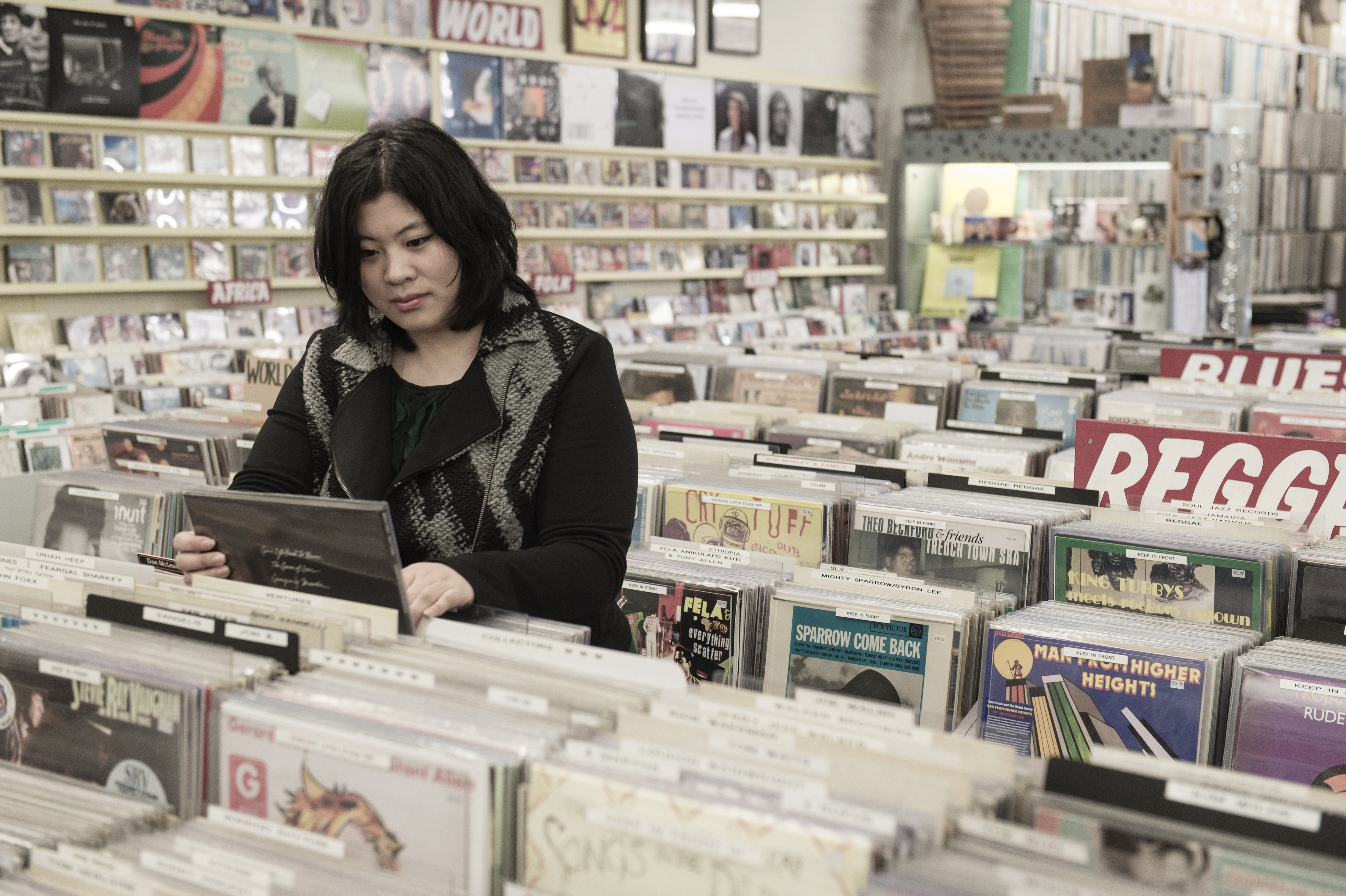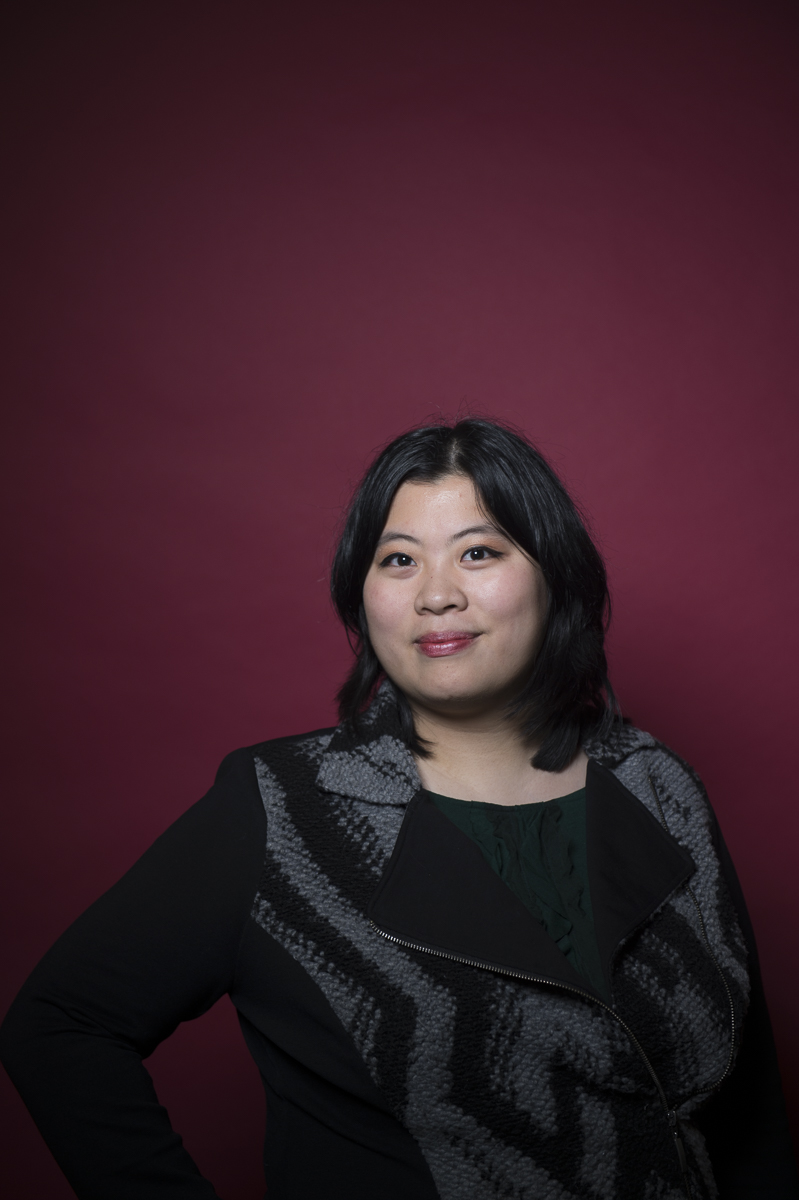Bursting filter bubbles
“A familiar example: you are comparing hotel prices for a business trip, and your screen is subsequently overrun with advertisements for hotel providers”, begins Cynthia Liem. This might not be earth-shattering, but the same phenomenon applies to the news items displayed to you online. Search engines and recommendation systems are primarily based on historical search and click behavior. “Items that are popular and that everybody clicks on are deemed to be the most ‘relevant’. And that is intensified by media like Facebook, which prioritises what your friends and their friends have liked, followed by the subjects that you have previously given a thumbs up.”
Echo chamber
Before you know it, you are stuck in an ‘echo chamber’, now a common metaphor for when your world view is determined online by one-sided information. Filter bubbles that exactly match your current profile. And these filter bubbles are seen as a social problem, as they can lead to new forms of (digital) compartmentalisation and polarisation.
But Cynthia points out that the search engine builders and digital information providers themselves are not happy with the development either: “Everyone is talking about the ‘long tail’, the enormous amount of information that is simply not found.”
Cynthia thinks that users themselves also recognise the filter problem: “Users are aware that they don’t see the best possible information, but precisely because there is an overwhelming amount of information on offer, they are increasingly less inclined to try and find it for themselves. They are reluctant about the fact that an algorithm determines what is relevant for them.”
Cynthia believes that these all represent missed opportunities, and that is why she plans to burst the filter bubbles. “There is so much more waiting to be discovered on the internet – music, literature, knowledge – that perhaps takes a little more time and energy to find. I want to do something about users’ laziness, by offering them options that are in fact, refreshing and surprising.”
She developed her ideas on the subject during her doctoral research into the searchability of digital music data. “I wanted to take it beyond standard criteria from metadata, which generally includes what is being played, using which instruments, and by whom. Those types of fields perhaps work if you search directly for a specific item, but in a lot of user contexts, the relevance criteria are more implicit.
You sometimes only know what you are looking for (or what you are not looking for) once you have gained a better impression of the space that the available items occupy. For example, I played recordings of concerts to people and asked them what made the greatest impression on them.
There turned out to be a significant amount of variation in their answers. This led me to conclude that there is no such thing as an optimal acoustic image, it really depends on the user context.”
Breaking the rules
Herself a classical musician, it was an issue that Cynthia had personal experience of: “There are often hundreds of performances of a certain piece. It is impossible for me to listen to them all, but I am interested in the various interpretations”, she explains.
However, there is no universal quality characteristic in music. “Of course, you can play the correct notes, but what often makes a work of art interesting is that which breaks the rules.” And that raised the question for her as a computer scientist of how to approach precisely those subjective criteria. “What does an object actually do, what sort of feeling does it evoke or taste does it have, as it were, and can I measure that and include it in my model?”
Oh, this is actually quite interesting!
Cynthia plans to approach the filter bubble problem from this perspective: “Is it possible to broaden somebody’s taste?” She turns to her own teaching as an example. “I teach elective subjects. Students are not obliged to take them, and sometimes opt to do so purely for the credits.
And afterwards, you hear them say: ‘Oh, this is actually quite interesting!’ Students listen to music and watch films on a daily basis. In our subjects, they learn to analyse this information, and that leads to surprising new perspectives and insights into information that they previously would not have given greater thought to.” Cynthia was the previous academic year’s Computer Science Teacher of the Year, so her perspective certainly holds some weight.
The foundations of this idea can also be found in research into the brain. “When something is better than you had expected, dopamine is produced in your brain”, explains Cynthia. In the trade, that is known as a positive prediction error.
She thinks she can play with this concept. “What you offer the user should not be so trivial that they know exactly what is coming, because that will fail to produce a reaction, but you need to have a degree of familiarity with the subject in order to be positively surprised. Precisely that which is on the edge of your comfort zone is the most interesting and will stick with you most clearly.”
Path towards new success criteria
Alternative measures of success are required in order to adjust search engines and recommendation systems accordingly: “We are yet to start working towards the correct optima. For example, a lot of relevance criteria assume that users click on what interests them. But this makes ‘click bait’ – whereby you tempt as many people as possible towards trivial information – the most ideal and relevant type of information.
And the click-through figures are used as a success criterion too. They are easy to measure and there is no need to actually ask the user anything.” Cynthia is therefore going to start by defining new success criteria. “We should be looking at the effect over a longer period than a single click.
And with regard to broadening interests, we need to be able to pinpoint the edge of comfort zones in user profiles, instead of the safe middle ground. After all, it is from this ‘edge’ that the broadening towards new interests can be developed. We can then gradually establish paths to spaces of information that are too extensive to survey in one go.”
Recommendation systems commonly use historical data sets (‘user A booked hotel room B’). However, her interest in developing interest profiles over longer periods of time means that Cynthia will need to be able to work with live systems.
She will then be able to make the intervention. Cynthia is already involved in consultation with a few interested parties, including a major media company and a library. “The Centrale Discotheek in Rotterdam is also keen to start working on broadening tastes. For example, to introduce a heavy metal fan to jazz music. I hope that my research can contribute, by gradually introducing users to new genres based on characteristics with which they are already familiar.”
Text: Agaath Diemel | Photography: Marcel Krijger | December 2016
Alongside her role as Assistant Professor in the Multimedia Computing Group, Cynthia Liem is also a classical pianist; and is one half of the Magma Duo ensemble (together with violinist Emmy Storms). |

